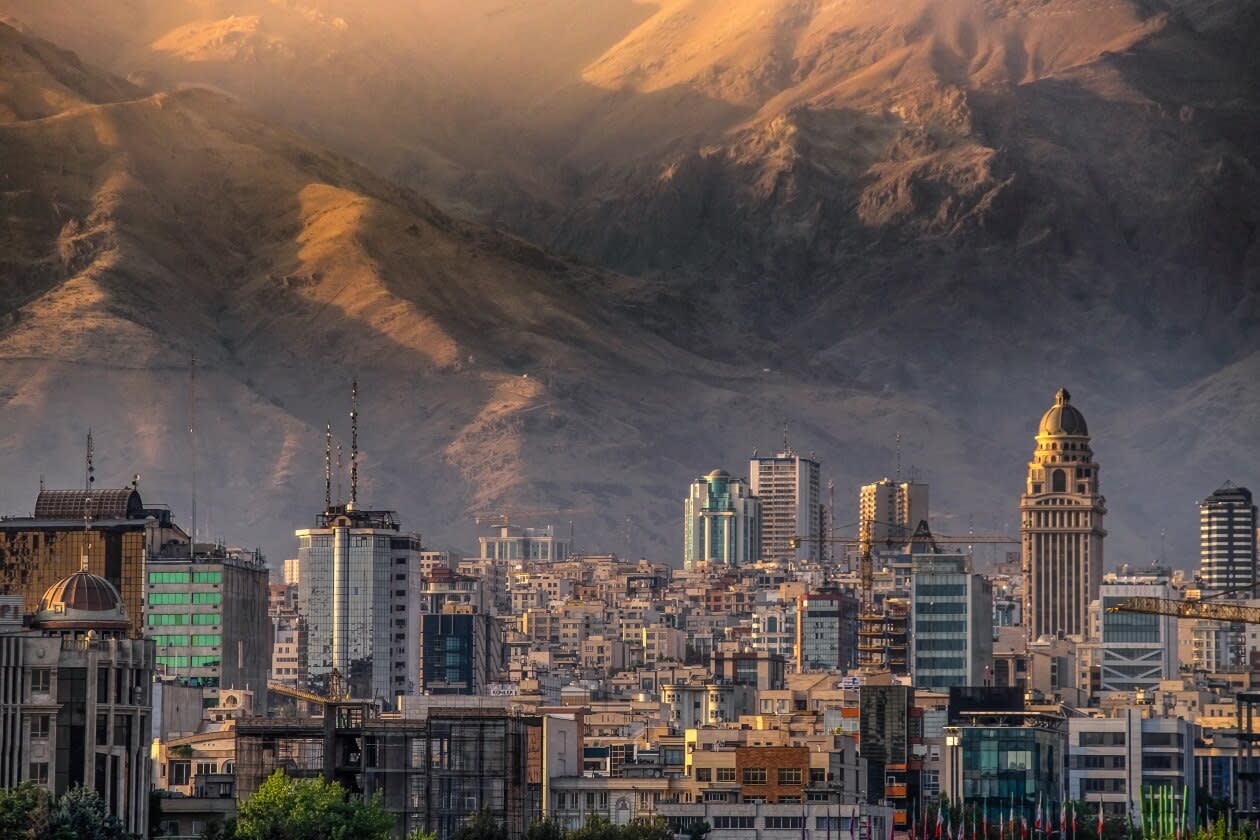Iran's economy is in bad shape. Decades of sanctions have driven up inflation, government debt, and poverty rates. Iran's struggles could be a warning for Russia as the war in Ukraine drags on.
Escalating tensions between Iran and Israel have driven up commodity costs, reignited worries about a flare-up in inflation, and sparked renewed fears of wider conflict in the Middle East.
One factor that might avert a regional war is the dismal state of Iran's economy.
The country has borne the brunt of Western sanctions for decades, making it tough for Tehran to finance any war effort — and that could be a warning sign for Vladimir Putin as the war in Ukraine drags on.
Sanctions packages
The US first imposed sanctions on Iran after students seized the American embassy in Tehran in 1979, and has stepped up its efforts considerably more recently.
In 2018, Donald Trump decided to pull out of a nuclear agreement between the US and Iran. The then-president said he would put "maximum economic pressure" on Iran, setting the stage for sanctions packages that have pummelled the Iranian economy.
Most countries that buy Iranian oil are banned from trading with the US. Iran is the world's seventh-largest oil producer, according to data from the US Energy Information Administration, so the restrictions have chipped away at a major engine for growth.
Iran's economy fell into a deep, two-year recession shortly after sanctions were reinstated, although economic growth has rebounded into positive territory since then. According to World Bank projections, Iran's economy is expected to have expanded by 4.2% last year.
Rising inflation and mounting debt
Despite that recent rise in GDP, other issues are plaguing Iran's economy.
Sanctions and a tumbling currency, the rial, have pushed inflation close to 50% at times in recent years, with food disproportionately affected. The cost of lentils has soared 130% since the start of this year, IranWire reported, while beans are up 30%, and red meat prices have jumped 25% over the same period, per Iran International.
Even before those increases about half the population consumed less than the recommended 2,100 calories a day last year, according to the Iranian parliament's research center, IranWire reported.
That cost-of-living crisis has also driven poverty rates higher. About 9.5 million Iranians fell into poverty in the 2010s, according to World Bank data, with over a quarter of citizens living on the equivalent of $6.85 a day or less back in 2017.
Stripped of key oil revenues, the government has resorted to borrowing, tripling its debt as a percentage of GDP ratio over the past 15 years. The higher deficit would make it much tougher to raise defense spending if tensions with Israel spiraled into a wider conflict.
Warning for Russia
Iran's struggles over the past decade could be a warning sign for Russia, sanctioned by the West since Vladimir Putin invaded Ukraine in February 2022.
Russia's economy appears to have remained resilient, but forecasters warn that the outlook may worsen as the war with Ukraine drags on.
Moscow has struggled to contain a spike in basic foodstuffs this year, leading to Soviet-style queues at supermarkets. Think-tanks have warned that the Kremlin risks becoming reliant on China, North Korea, and even Iran for weapons because it's been cut off from foreign lenders.
If Iran's example is anything to go by, even tougher times may lie ahead.
This article was written by George Glover from Business Insider and was legally licensed through the DiveMarketplace by Industry Dive. Please direct all licensing questions to legal@industrydive.com.

